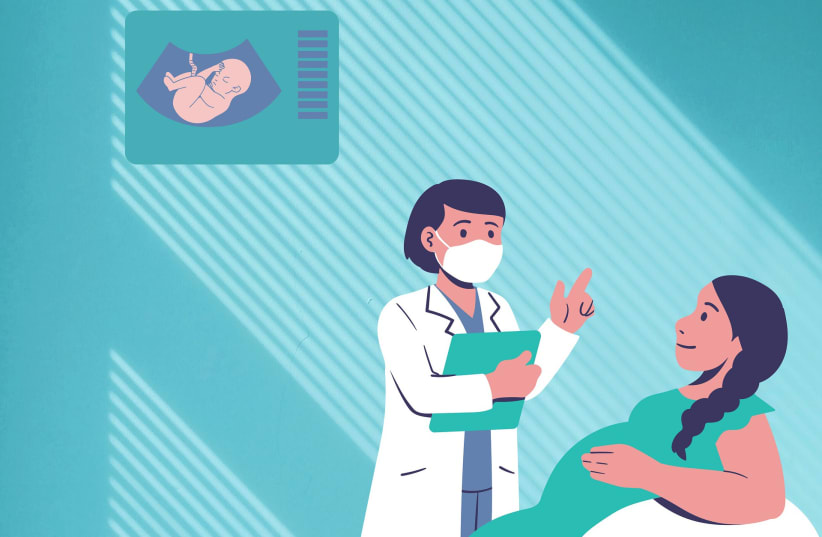There shouldn’t be a difference between the way male and female gynecologists relate to their patients – but there is, according to Tel Aviv University researchers. The men focus on fertility, reproduction and delivering babies; the women are interested in this but also in women’s health after they finish having a family.
A new study recently published in the prestigious Nature Reviews Urology found that 49% of all scientific journals on gynecology and obstetrics focus solely on reproduction; only 12% are dedicated to women’s health issues unrelated to their reproductive role; and a mere 4% focus on women’s health before and after their reproductive years, including menopause.
The study, which was conducted by Dr. Netta Avnoon of the sociology and anthropology department and the Coller School of Management at Tel Aviv University (TAU), found that when mapping scientific journals in the category of gynecology and obstetrics, the majority deal with fertility, pregnancy, fetuses and childbirth, while many topics that are much more critical to women's quality of life receive little attention, both in scientific research and in the clinic.
“Men have dominated gynecology for almost 1,000 years, and their gender identity impacts everything that happens in this specialty, including research design and medical practices.”
Dr. Netta Avnoon
“Men have dominated gynecology for almost 1,000 years, and their gender identity impacts everything that happens in this specialty, including research design and medical practices,” declared Avnoon. For most of these years, women doctors weren’t even allowed to specialize in gynecology.
“Even if they are unaware of their own bias and have the best intentions, men traditionally regard the female body as an object for producing babies or satisfying men's sexual desires. The time has come for women to dominate the discipline that is meant to care for their health,” she wrote.
Gender bias keeps issues critical to women's health don't get researched
BECAUSE OF “gender bias, issues that are critical to women’s health and well-being – such as diseases of the sexual organs, sexual pleasure, rights and autonomy in childbirth, and more – receive little attention both in research and in the clinic,” the TAU researcher stated. “The gender composition of leadership in the gynecological professions must change, and the voice of women-patients, as the sole authority in matters regarding their own bodies, must be heard. Research on women's health, neglected for centuries, must be expanded.”
According to the comment article reporting these preliminary results, published in the prestigious journal, such important issues, marginalized for centuries, include: diseases and damage to the muscles and nerves of the female pelvis and sexual organs, female sexual pleasure, rights and autonomy in childbirth, the connection between the menstrual cycle and the immune system, menopause and the later years of life, and more.
Avnoon explained that no social activity is neutral, objective or contextless, and science and medicine are no exception. “Inevitably, social positions and dispositions impact the attitudes of those who create science,” the study said. “Extensive historical and feminist scholarship has shown that gynecology as a medical specialty was masculinized 800 years ago, and still adheres to patriarchal values.”
In ancient times, women “were usually treated by female experts who even wrote books on the subject, but during the Middle Ages, these women and their knowledge were gradually ousted and replaced by men,” she continued. “Since the 16th century, the specialty has been wholly dominated by males, and consequently they were the ones to determine which topics are ‘interesting’ and worth studying; they were the ones who set practices and protocols and introduced treatments, technologies, and techniques, all too often subjecting patients to medical practices that are not necessarily benevolent.
AVNOON NOTED a recent instance of gynecology’s gender bias – the transvaginal mesh scandal. In 2019, the US Food and Drug Administration (FDA) banned the use of the transvaginal mesh – a common gynecological procedure used since the 1950s to repair pelvic organ prolapse in the anterior vaginal compartment, which had caused extensive sickness and even 77 documented deaths in the US. Patients’ activism had moved the regulator to intervene, exposing the decades-long failure of gynecological science to clinically assess the outcomes of this surgical procedure and revealing the bias in how researchers presented these results in scientific publications.
The study author now proposes that obstetrics – focusing on fertility, reproduction, pregnancy, the fetus and childbirth – should be separated from gynecology, a specialty dedicated to women’s health. “Care for the fetus, essential in its own right, must not come at the expense of the mother’s health,” she insisted.
“Also, gynecology training must include a major chapter of gender and feminist studies, and existing medical protocols should be thoroughly amended to focus on the needs of the women themselves – rather than those of their babies, their spouses or their doctors,” Avnoon wrote. “Moreover, legislation and legal procedures are in order, especially in courts of human rights, to protect women's right to health and optimal medical care.”
The time has come for women-centered gynecology, she concluded. “Women’s voices must be heard. To date, medical schools offer their students very scant and unsatisfactory knowledge about female anatomy and physiology, specifically in terms of women’s sexuality. Even though the overall numbers of female gynecologists are on the rise (in the US there are by now more women than men in this profession), their education is still based on age-old masculine and chauvinistic traditions.
“To generate real change, doctors must be trained to regard women's rights, health and sexuality as the main focus of women’s medicine, and to treat their patients with respect,” Avnoon concludes. “Greater emphasis should be given to patient experience and autonomy in medical settings, and to much-needed innovation in research, instruments, technologies, protocols, surgical procedures and medications.”

